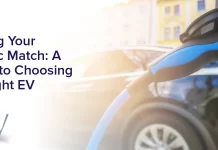
Every year, technological progress accelerates and opens up new opportunities for users. In particular, this applies to buildings and their equipment. With the development of technology, it has become possible to use “smart” installations and control with the help of gadgets in the home. This radically changed the level of comfort and improved living conditions.
However, that’s not all. Homeowners who choose such technologies can provide them with power from ecological energy sources. A great solution for this is solar systems with the appropriate power level. Experts from solarsystems.reviews will help you to choose the best ones. The combination of such solutions in the house allows you to get several advantages. We suggest you find out what they are and how a smart home saves solar energy.
Which Automated Home Technologies Are Solar-powered?
Before starting the search for suppliers by the request: of “solar companies near me”, it is worth understanding in detail the features of using the installations. If you’re the owner of a smart home, you’re probably wondering what solar power is good for. The answer is simple – solar panels can provide electricity to all systems and automated devices of a smart home.
At the same time, energy transfer is carried out thanks to the installation of an intelligent inverter system. It converts the direct current of solar panels into alternating current used by all devices. The following device systems can use it:
- Home security systems (including video surveillance cameras, electronic locks, smoke detectors, and motion sensors).
- Household appliances (this category includes audio systems, televisions, washing machines, microwave ovens, refrigerators, etc.).
- Climatic installations (these are thermostats, heaters, fans, and air conditioning systems);
- devices for home watering.
In addition, a smart home based on solar batteries involves the use of renewable energy to power lighting systems. This applies to both internal and external devices. Some people may think that such a source of energy may not be enough for all the systems and technologies used in a smart home. However, any expert will be able to dispel doubts.
After all, for the house, you can order constructions of different power and in the amount necessary for full power. You only need to consult with specialists and choose the best solution. In addition, it is worth paying attention to the research presented on energy.gov. It states that solar energy has the greatest potential among other renewable energy sources in the United States.
How Is Solar Energy Integrated Into Smart Home Technologies?
Engineers implementing such solutions emphasize the benefits of solar panels for such housing. It consists of the fact that power from renewable energy sources contributes to reducing the carbon footprint at the global level and increasing the comfort of living. Smart home solar is a real ecological center that provides better living conditions and reduces the impact on the environment. Technology can be integrated in different ways.
| Smart thermostats | These component systems of smart home devices ensure the maintenance of an optimal temperature in the house. If they are connected to sources that generate solar electricity, they can constantly maintain a comfortable microclimate. |
| A system of online monitoring of the amount of electricity generated by solar panels | This component is a special application that constantly monitors the operation of the inverter. It provides the owner with the necessary data on the amount of electricity produced by the solar systems. |
| Smart technologies for electric cars | Electricity generated by solar panels can also power electric vehicle charging devices. |
In addition, it is worth highlighting smart inverters. They are intended for the autonomous integration of solar electricity into the general network. The main function of such devices is to convert direct current into alternating current (suitable for use in the network).
What Advantages Does Solar Smart Living Provide?
The integration of solar panels into smart home systems significantly improves all automation processes and contributes to obtaining additional benefits. Here are several aspects that reveal its essence.
Reducing Dependence on the General Network
Unfortunately, sudden and sometimes long power outages are not a rare phenomenon. The situation differs depending on the state and the condition of the power system. However, even small failures in the supply of electricity to the system of a smart house bring unpleasant consequences.
One of them may even be the failure of some systems. If it is lighting or air conditioning, then the situation is not critical. However, power outages also cause security systems to shut down. And this is a much more serious consequence that can cause problems. Thanks to the use of solar panels, such situations can be prevented and the smart home devices can be powered.
The intelligent system plays an important role in it. Its use allows rational distribution of smart home energy that has been accumulated in the system. This means that the owner can decide for himself which devices to connect to the network when the general electricity is turned off. This helps to use the available stocks sparingly.
Saving Financial Resources
For some people, using solar panels in a smart home can seem quite expensive. The main reason for such assumptions is usually the relatively high cost of purchasing and installing solar systems. However, this one-time investment will help to significantly save money in the future. This is ensured by several features:
- Thanks to the use of solar energy, you can significantly reduce the utility bill (a fairly large amount is charged per year).
- The state supports the transition to renewable energy sources, therefore it encourages owners in every possible way (loans and benefits are provided).
- If the surplus of generated electricity is sent back to the power grid, then compensation can also be obtained.
Smart home technologies also ensure the rational distribution of electricity during peak hours. This means that they can switch power to solar energy during this period. Under such conditions, tariffs for the use of electricity will decrease.
Increasing Energy Efficiency
This is the main advantage provided by modern houses with solar panels. It consists of the fact that automated solutions are aimed at the rational use of electricity. If they are integrated with solar systems, then such a combination contributes to the economical use of energy resources. For example, special devices perform automatic geozoning. Thanks to this, they detect whether the owners are in the room.
If there are none, then the system automatically turns off the power of devices that are not in use. The same decision is made regarding the microclimate. If the devices detect that you are not at home, they adjust the temperature to the appropriate values. If necessary, they switch the system to solar battery power.
Conclusions
The integration of smart home systems and solar panels is an effective solution that will bring you several advantages. Not only will you protect your home from the consequences of unexpected outages, but you will also be able to save money and reduce utility bills.





